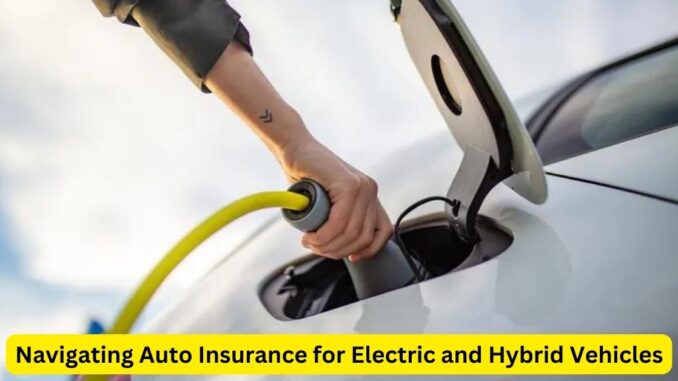
As the automotive industry continues its shift towards sustainability, an increasing number of drivers are opting for electric and hybrid vehicles. While these eco-friendly alternatives offer numerous benefits, including reduced emissions and lower fuel costs, they also bring about unique considerations when it comes to auto insurance.
1. Understanding the Technology: One of the key aspects of insuring electric and hybrid vehicles is understanding the advanced technology that powers them. Electric cars, in particular, have intricate battery systems that can be expensive to repair or replace. Insurance policies for these vehicles often need to account for the specialized parts and expertise required in the event of damage.
2. Specialized Coverage Options: Given the distinctive features of electric and hybrid vehicles, insurance providers are increasingly offering specialized coverage options. Some policies may include coverage for the electric battery, which is a critical and costly component of these vehicles. Comprehensive coverage may also be essential to protect against potential damage to the charging infrastructure.
3. Battery Replacement Coverage: Electric vehicle (EV) owners should consider policies that offer coverage for battery replacement. The batteries in electric cars can be a substantial expense, and having insurance that helps offset the cost of replacement in the event of damage or deterioration can be a valuable asset.
4. Maintenance and Repair Costs: Auto insurance for electric and hybrid vehicles should also factor in the maintenance and repair costs associated with their unique components. While electric cars often require less maintenance than traditional vehicles, when repairs are needed, they can be more specialized and potentially pricier.
5. Discounts for Green Driving: Some insurance companies offer discounts for environmentally conscious driving habits. If you own an electric or hybrid vehicle, inquire about potential discounts related to reduced emissions and eco-friendly choices. These incentives can make coverage for these vehicles more cost-effective.
6. Charging Station Liability: As electric vehicle charging infrastructure becomes more widespread, insurance coverage should also extend to potential liabilities associated with charging stations. Policies should consider damages or injuries that may occur in the vicinity of charging stations, ensuring comprehensive protection for the vehicle owner.
7. Keeping Pace with Technology: Electric and hybrid vehicle technology is rapidly evolving. When selecting insurance coverage, consider policies that can adapt to emerging technologies and new developments in the electric vehicle market. This flexibility will ensure that your coverage remains relevant as the industry continues to innovate.
In conclusion, as electric and hybrid vehicles become increasingly popular, the insurance landscape is evolving to accommodate the unique needs of these eco-friendly options. From specialized coverage for advanced technology to considerations for charging infrastructure liabilities, it’s crucial for drivers of electric and hybrid vehicles to explore insurance options that align with the distinctive features of their chosen mode of transportation. By staying informed and choosing the right coverage, drivers can enjoy the environmental and cost benefits of electric and hybrid vehicles with confidence.
Leave a Reply